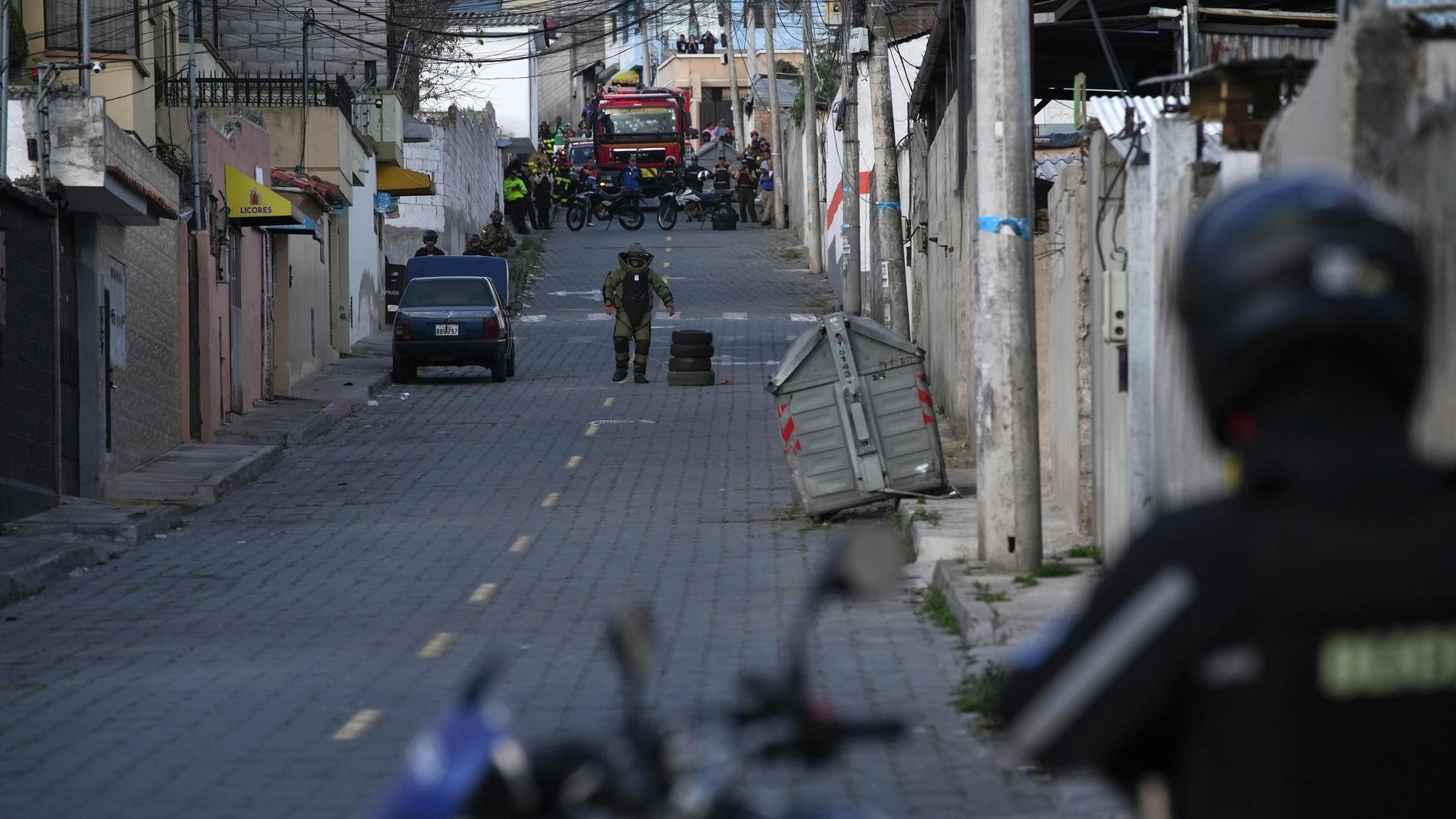
Walking fast, with their eyes alert and voices low, a few Ecuadorans flitted about fearfully Wednesday on city streets all but deserted amid an escalating conflict between the armed forces and violent drug gangs.
Since Monday, narco gunmen have kidnapped police and prison guards, opened fire in a TV studio during a live broadcast, set off explosions in public places in several cities, and threatened random executions.
In the capital Quito, where a heavy military presence has been deployed, 54-year-old shopkeeper Rocio Guzman says the terrifying sounds of a shootout near her businesses and a hospital Tuesday still resonated in her head.
In the port city of Guayaquil, hotels, offices and shops also shuttered their doors.
The few pedestrians around Wednesday were too afraid to talk to AFP, and in many areas of the city there were more police than merchants.
The small South American country has been plunged into crisis after years of growing control by transnational cartels who use its ports to ship cocaine to the United States and Europe.
The most recent explosion of violence was sparked by the discovery Sunday of the prison escape of Jose Adolfo Macias, a.k.a "Fito", leader of the country's main crime gang, called Los Choneros.
In response, President Daniel Noboa, who took office in November with promises to clamp down on Ecuador's spiraling problem of gang-related crime and violence, declared a nationwide curfew and state of emergency.
The criminal rejoinder was quick to follow, with riots in prisons, seven police officers kidnapped, dozens of prison guards held hostage and at least 14 people killed to date.
School classes countrywide were taught online Wednesday, and many companies urged staff to work from home.